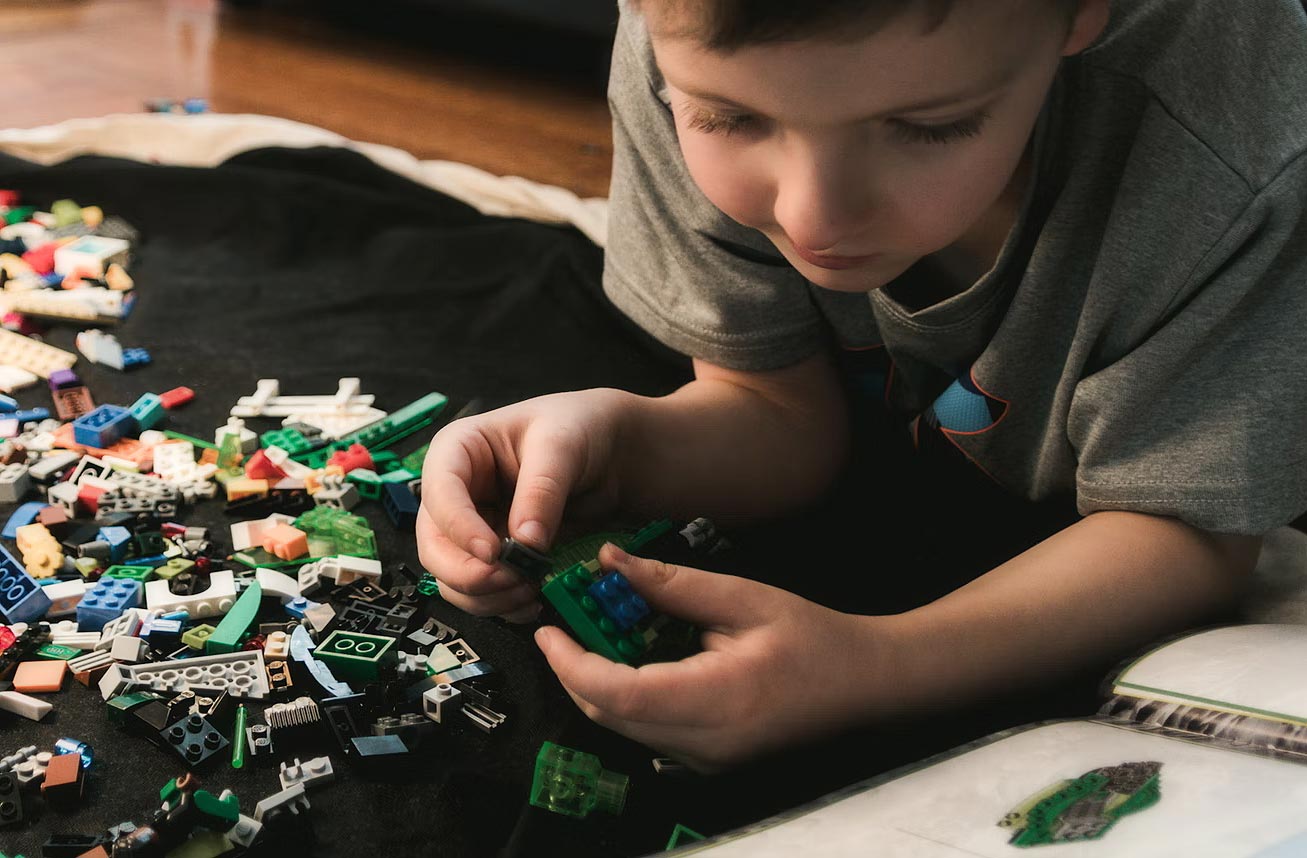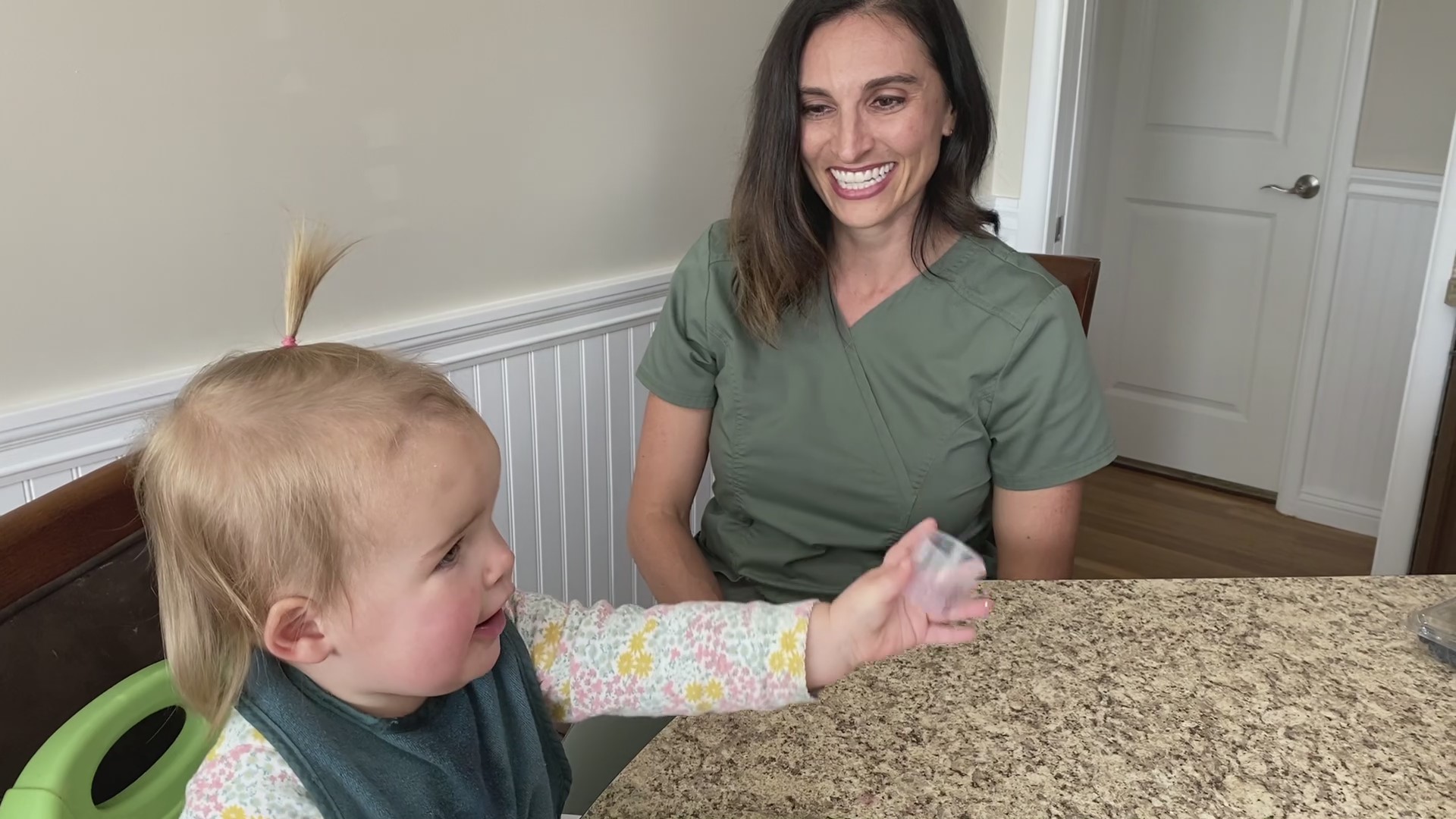The term “speech” and “speech therapy” can be really confusing because they mean many different things. A speech therapist works with all ages, birth to death, and often a speech therapist will specialize in an age group (“pediatric” or “adult”) or in a diagnosis.
“Speech” can mean: teaching people to say speech sounds (articulation), using and understanding language, feeding and swallowing for babies up through adults, and helping people improve communication based on their medical diagnosis to name a few.
I’m a speech therapist specializing in feeding and swallowing in infants and toddlers. That means I help babies learn to eat — from pureed food to mashing up their own peas and carrots. I also teach parents how to help their children eat safely, whether it’s with a spoon or a straw.

I work with kids who have eating difficulty for a variety of reasons, including difficulty swallowing, developmental delays, motor delays, sensory processing problems, and/or behavioral problems such as picky eating and food refusal. Some are so anxious about new foods that they gag on even the slightest bite of banana or cheese stick. And some don’t want anything to do with eating at all! There is a myth that eating is as easy as putting food in their mouth, chewing, and swallowing… if only it were that easy.

Does Speech Therapy/ Feeding Therapy Actually Work?
Yes, speech therapy can help improve your child’s feeding skills. Keep in mind that when you start is important, so make an appointment as early as possible. I am passionate about getting information about eating and feeding babies at the earliest stages, before they have to get intensive feeding therapy. A parent or caregiver learns and participates in the exercises at home to make them most effective.
Feeding Therapy Techniques for Children
- Make feeding positive.
- Have fun and get messy!
- Create “shared eating experiences”
- Eat with your child and show them the skill you want them to learn
- Use supportive language that encourages your child to do the thing you want them to do
- When you give your child a new food and they make the “yuck face”, say “you are trying a new food!” instead of “you don’t like it”
- Give your baby at least 10 opportunities to try new foods.
- That’s at least 10 different days. It takes time for them to get used to foods and we can’t expect them to like a food the first time they try it. If they don’t like it the first time, they can play with it in their hands or with a spoon, touch it to their lips or lick it, and you can show them how to eat it without expecting them to eat it.
- Make sure to offer your child a variety of foods
- When introducing a new food, the guideline is to do one new food every three days. We want them to have a variety of foods to get their nutrition.
Is a Speech Therapist the Same as a Speech Language Pathologist?
YES. Speech pathologist, speech-language pathologist, and speech therapist are the same profession. We work with people who have speech, language, cognitive and swallowing disorders.
For the last 17 years, I’ve been working as a speech language pathologist specializing in pediatrics and helping babies eat. My job is to help babies learn to suck and swallow properly so that they can eat solid foods. It sounds simple enough, but it is difficult (and rewarding) work.
You see, eating is an important skill for babies to learn because it helps them grow big and strong like their parents want them to be. But it takes time and practice for babies to learn how to do this new skill.


Work With a Speech Language Pathologist
As a parent, you know how important it is to have your child learn to eat. Eating and feeding skills are the most important skills babies develop that continue the rest of their lives. If your child is not eating well or you have any questions or concerns, it can affect their overall development and cause you a lot of anxiety.
Luckily, there’s an option. Working with a specialized speech and feeding therapist can improve your child’s eating and feeding skills. The more positive experiences they have (and that YOU have) with eating, feeding, and mealtimes the more confident they (and YOU!) will become. If you are looking to work with a speech language pathologist, book a ten minute call with Breanna Rose and find out how she can help!
Benefits of Virtual Visits
Long before Covid I was pushing for virtual visits. Why? I worked in an out-patient setting with parents and their kids on eating and feeding. It was very difficult to get good lasting results that carried over to the home environment. I have also worked directly in the home with families which is more successful and I can make appropriate recommendations given the environment. One of the drawbacks is kids feel more pressured to eat. Now using virtual visits more often, kids are less distracted by me and less pressured. Also, my goal is to reach as many people as I can so virtual sessions allow not only a better experience for your child but for me to reach more people.
